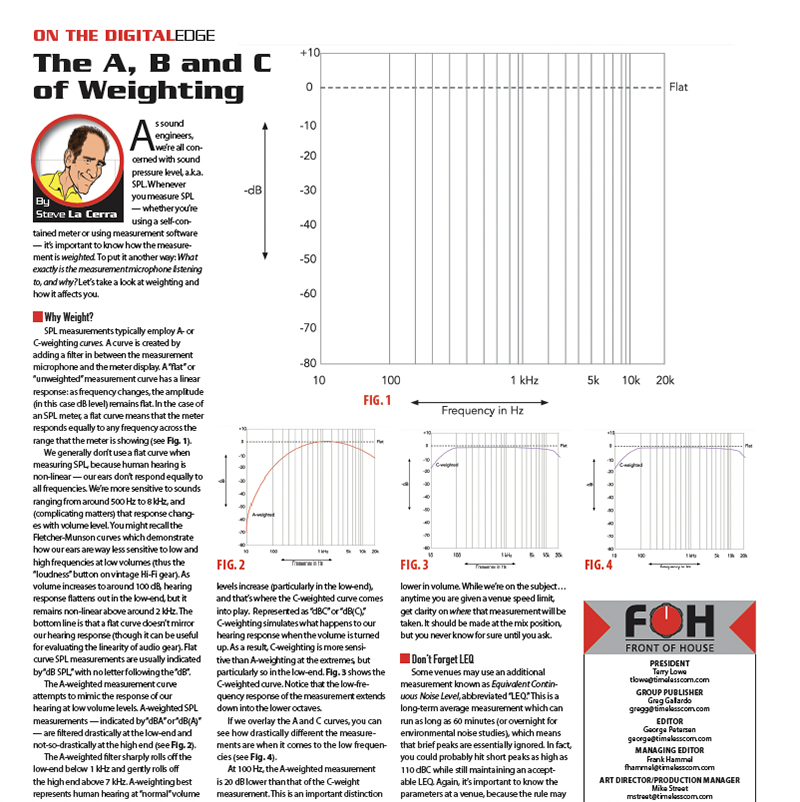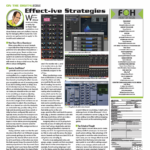Somewhere between a university course study and a fantasy camp for audio pros lies the educational territory occupied by the Blackbird Academy. Located at Blackbird Studio, this institute of specialized learning is nestled into what seems to be an unassuming residential neighborhood in Nashville’s Berry Hill area. However, in these few blocks, more than 40 recording studios are hidden within the walls of wood frame structures that were originally constructed years ago as military housing. Even Blackbird’s street address, Azalea Place, conjures an image of the Old South. While there’s a definite sense of history here, it is not about events that have been recorded in textbooks, romanticized in novels, recreated in movies or captured in songs. The history of this small region has instead been stored on magnetic tape, vinyl, CDs and hard drives.
More noteworthy is the conceptual territory inhabited by Blackbird Academy that defines the school’s unique, remarkable environment. Within the walls of Blackbird Studio, John and Martina McBride have designed and built the ultimate cathedral of creativity for producers, audio engineers and musicians. The rambling complex houses nine separate and highly individualized studios that comprise the various “chapels” of audio recording. Each of the control rooms and performance spaces vary widely in size, decor and acoustical properties. The larger control rooms feature API, Neve or SSL consoles that are custom-built, faithfully restored or purposefully modified. Each of these carefully selected desks achieves the pinnacle of performance from these time-honored designs. And 32- or 48-fader consoles in the smaller control rooms offer the same quality as the larger format versions found in the bigger rooms.
The vast (and immensely valuable) treasures of the cathedral are stored in the road cases, on the shelves and in the drawers of Blackbird Rentals. John McBride and his staff have amassed and assembled the finest collection of vintage audio gear and musical instruments found anywhere in the world. This inventory is made available to the clients at the studio and to the music community at large. While walking through the various storerooms at Blackbird Rentals, one might easily mistake the experience for strolling through a respectfully created and carefully maintained museum displaying the finest pieces from the history of modern musical instruments, recording devices and audio processing equipment.
Blackbird owns the largest stockpile of rare and vintage Telefunken, Neumann and AKG microphones ever assembled. The array of highly prized tube and solid state compressors, specialized EQs and outboard analog and digital effects is absolutely awe-inspiring. The guitars, keyboards and drum kits are the best of the best. John has often expressed that it was his intent to build a facility in which everything needed to create fantastic recordings was there waiting to be employed by the artists. All that musicians or producers had to do was drive to the studio with their creative processes engaged and Blackbird would provide everything else — the paints, the palette, the brushes and the canvas.
In December 2013, I was in Nashville on a business trip when John McBride invited me over to visit Blackbird Studio. It was my first opportunity to see firsthand what had been so lovingly and skillfully created by John and Martina. With each step on the grand tour, my sense of wonder and amazement grew stronger. As I viewed each gorgeous studio and saw the astounding collection of gear, it was apparent that I was witnessing the realization of an audio engineer’s dream — a dream that in its fulfillment had lifted our professional world to a better place. It was during this walking tour that John shared with me the details of his newest endeavor. Blackbird Academy had opened its door to the inaugural Studio Engineering class earlier in the fall of 2013.
 Re-Education
Re-Education
I was curious why John had chosen to open a school at Blackbird. After all, there are hundreds of institutions throughout North America offering courses in audio, from the largest private and public universities to small, specialized technical schools. John answered that he and the engineering staff at Blackbird had employed many interns or entry-level engineers at the studio since the facility opened in 2002. He expressed that both he and his staff were generally disappointed with state of preparedness that these candidates demonstrated when they walked through the door. In nearly every case, it was necessary to start from scratch and completely retrain these individuals in real-world studio techniques, equipment operation/maintenance and client/engineer etiquette.
This process of re-education became so redundantly frustrating, time consuming and costly that McBride was driven the conclusion that the best solution was to establish the school. By carefully tailoring the curriculum at Blackbird Academy, John felt he could ensure that the graduates produced by the program would possess the industry aptitude, the tech background and the theoretical knowledge that were necessary to make an immediate and meaningful contribution to the family of recording engineers, producers and musicians. John McBride takes his role as a mentor and an educator very seriously. He believes that the Academy is the best possible vehicle for making a significant contribution back to the community that has both provided his living and supported his passion throughout his many years in the music business.
John McBride has always been a doer. From his earliest days as the owner of MD Systems, originally a small sound company in Wichita, KS, to his present position as president/CEO of Blackbird, John has been a hands-on engineer. McBride can often be found behind one of the beautiful analog desks at Blackbird. Additionally, John still goes on the road to mix FOH sound at all concerts performed by his wife, Martina McBride. John runs those shows on his trusted ATI Paragon II analog console. It is no coincidence that ATI live sound consoles and A.P.I. studio desks are built by companies owned by our old friend, Larry Droppa, who was himself a successful live sound engineer for many years.
John’s decision to start his own school came as no surprise. When John informed me that the first class of students was in session during the fall of 2013, I let him know that I often guest lecture at the University of Southern California in classes taught by professor Ken Lopez at the Thornton School of Music. I told him that I would always make myself available to him if he felt I had something of substance to offer his students. This discussion was taking place at the exact moment we were passing by Blackbird Academy’s classroom. John said that a class was in session at the time and that we should stop in and observe.
Entering the classroom, I noted a two-tiered seating area for the students. On each tier were 15 chairs and desks. Sitting on top of each desk was a computer workstation on which the students were studying and employing Pro Tools software. This well-appointed, intelligently laid out classroom is the only environment for students in the Studio Recording division that is removed from Blackbird Studio’s working equipment and personnel. Yet in the classroom all students remain connected to the studio processes through their fully networked DAW. John and I took up a discreet position in a corner of the room. John assured me that we wouldn’t disturb instructor Mark Rubel’s lecture and that our stay would be brief.
Mark, however, had just concluded a particular lesson segment, and John stood up during the pause and introduced me to the class. When he mentioned that my current employer is James Taylor and that I had also spent many years on the road with Paul Simon and Steely Dan, I could feel the attention of everyone in the room shift focus straight onto me. Mark Rubel invited me up to the front of the class, and he and John began asking me a series of biographical and work-related questions that precipitated a lively discussion about live sound mixing with every student participating. Somehow, a five-minute drop-in visit turned into an hour and a half of rapid-fire questions and answers. The students were hungry for information, and I was glad to respond in depth to their inquisitiveness.
Both John and I walked out of the classroom laughing about how our “brief” visit had evolved into a guest lecturer experience. John was kind enough to describe me as a natural teacher and let me know I was welcome to participate in the Blackbird Academy program whenever my work schedule brought me to Nashville. I, too, am at the point in my career where giving back to the industry is of primary importance and I humbly accepted his offer. I felt honored to be included in the amazing family of talented producers, artists and engineers whom John McBride has assembled to donate the benefit of their experience in mentoring the next generation of audio professionals.
Note: This inside look into the Blackbird Academy will continue next month. Until then…Safe Travels!



